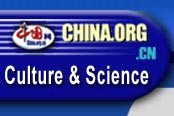For the most part, critics have interpreted the recently released film The Guasha Treatment as an examination of the profound differences that still exist between Chinese and American cultures, but at least one expert took it as a face-value examination of the state of Chinese traditional medicine.
In the film, American authorities accuse Chinese parents of abusing their child because the boy is found with red welts on his back - effects of guasha, a traditional Chinese therapy.
For most, the story is significant because it portrays a believable clash between two of the world's most dominant cultures.
But Professor Li Enfu, director of the Traditional Chinese Medicine Hospital of Hebei Province, believes the film is valuable because it portrays the lack of respect shown to traditional Chinese medicine in other parts of the world.
"The film reminds us the unsatisfactory situation of traditional Chinese medicine," Li said, during a recent interview.
Li said he doesn't believe Western medicine is necessarily superior to traditional Chinese medicine. "The most important thing to realize is that traditional Chinese medicine can cure diseases and save lives," he explained.
Li's life has been tied up with the sacred but difficult task of saving lives ever since he graduated from the Tianjin College of Traditional Chinese Medicine in 1962. He persisted with his profession, healing people.
Today, his practice is thriving and many of his patients include what he called "very important people."
Despite the success, however, Li said he always remembers his first patient, Wang Sen.
"I remembered when I first saw him, I was shocked by how weak and thin he was. I heard rumblings continuously come out of his belly," Li recalled.
Wang could not eat and felt hot. He had been diagnosed as having hepatocirrhosis, a liver disease, by doctors of other hospitals. Western cures had not worked.
Li remembered an old Chinese medical book which described the patient's illness as a febrile disease, which in traditional Chinese medicine was classified as a "cold" disease.
Despite the arguments from his colleagues that Wang's symptoms indicated a "hot" disease, Li insisted on his own diagnosis and began treatment. Wang Sen soon recovered.
Li said he remembers Wang Sen well not simply because he was his first patient, but also because another patient accused Wang of engaging in criminal activities. Before Wang left the hospital, Li gave him some moral advice, explaining that the mind is closely related with the health of body.
When he was a young doctor, Li spent most of his spare time studying ancient medical documents and trying to develop new medicines by combining traditional theories with modern chemical and physical technology.
His career seemed promising, but when the "cultural revolution (1966-76)" arrived, Li was accused of spending more time on medicine than on study of revolutionary theory.
However, Li did study the philosophies of Marx and Mao Zedong, and pondered problems in traditional Chinese medicine.
According to the doctor, traditional Chinese medicine requires comprehensive and dialectical evaluation of every patient. Because of this, Li said he was able to draw connections between his profession and Marx's philosophical theories.
Later, guided by the dialectical thinking methods he cultivated, Li began practising medicine in ways that occasionally deviated from the norm.
Li argued for a combination of Chinese and Western medical traditions and argued that, although many Chinese medical theories could not be explained with chemical analysis, it did not mean they were contradictory to the modern medical theories.
According to Li, traditional Chinese medicine and Western medicine were children of different philosophical systems. The two medical systems could, however, be complementary in the treatment of diseases.
The culmination of Li's study and research came in the form of medical porridge, a Sino-Western medicinal concoction he developed to treat stomach problems.
Li's concoction has now been developed into dozens of varieties, which are being used nationwide to treat various digestive diseases from common dyspepsia to atrophic gastricism.
Li claims the medical porridge is nothing new in the world of traditional medicine, and he cites medical books dating back 1,000 years that mention similar substances.
But, while the idea is not completely new, the doctor did make some significant changes.
"What is different now is that we can have conducted hundreds of medical experiments and used them to upgrade the production technologies," Li explained.
"For our ancestors, eating porridge was a good way to keep healthy, but now it is also a good way to cure diseases because it is a type of medicine that is better accepted by patients with digestive diseases," he said.
Li explained the difference, as he sees it, between Western and Chinese medicine: Western medicine only stresses chemical experiments and analysis, while traditional Chinese medicine emphasizes integrative reviews of a patient's health and his or her physical and mental activities.
A number of Western-trained physicians tend to keep their doctoring confined within the clinic, but in his 40 years of medical practice, Li has formed the habit of visiting patients' families to learn more about their conditions.
Medicine should combine a patient's disease with his everyday life , Li explained.
The doctor admitted Western medicine has the advantage in providing unified diagnoses and treatments for most diseases.
But, even though traditional Chinese doctors often provide different explanations for the same disease, Li claimed this is not necessarily a flaw.
"In any science, including medicine, there are different views on certain topics, and it is actually because of these differences that science is able to progress," he said.
(China Daily 04/04/2001)
